Minor-league clubs put faith in the Force and other theme nights
HARTFORD, Connecticut - A couple days ahead of Star Wars Weekend, a highlight of the Hartford Yard Goats' 2019 promotional schedule, Darth Vader was nowhere to be found.
The guild of local actors sanctioned by Lucasfilm to play the hard-breathing villain (and the rest of the Star Wars ne'er-do-wells) "just couldn't get any volunteers to do it," lamented Yard Goats general manager Mike Abramson, rendering a not-insignificant blow to their lineup of characters.
They had the specialty jerseys, which would be auctioned off, game-worn, following Saturday's contest. They had finalized their myriad Star Wars-themed graphics and videos. They had locked down another group of actors to portray Luke Skywalker and friends - the good guys - on the concourse, and even provide a Jedi training tutorial for padawans more enchanted by the Force than baseball. They had planned a postgame fireworks display set to John Williams' indelible score. Still, as the weekend loomed, the Yard Goats' front office recognized that it isn't really Star Wars Weekend without Darth Vader.
So, shortly before gates opened July 26 at Dunkin' Donuts Park, three dutiful staffers stepped up. Two of them donned store-bought stormtrooper costumes, and another dressed up as Darth himself, red lightsaber and all.
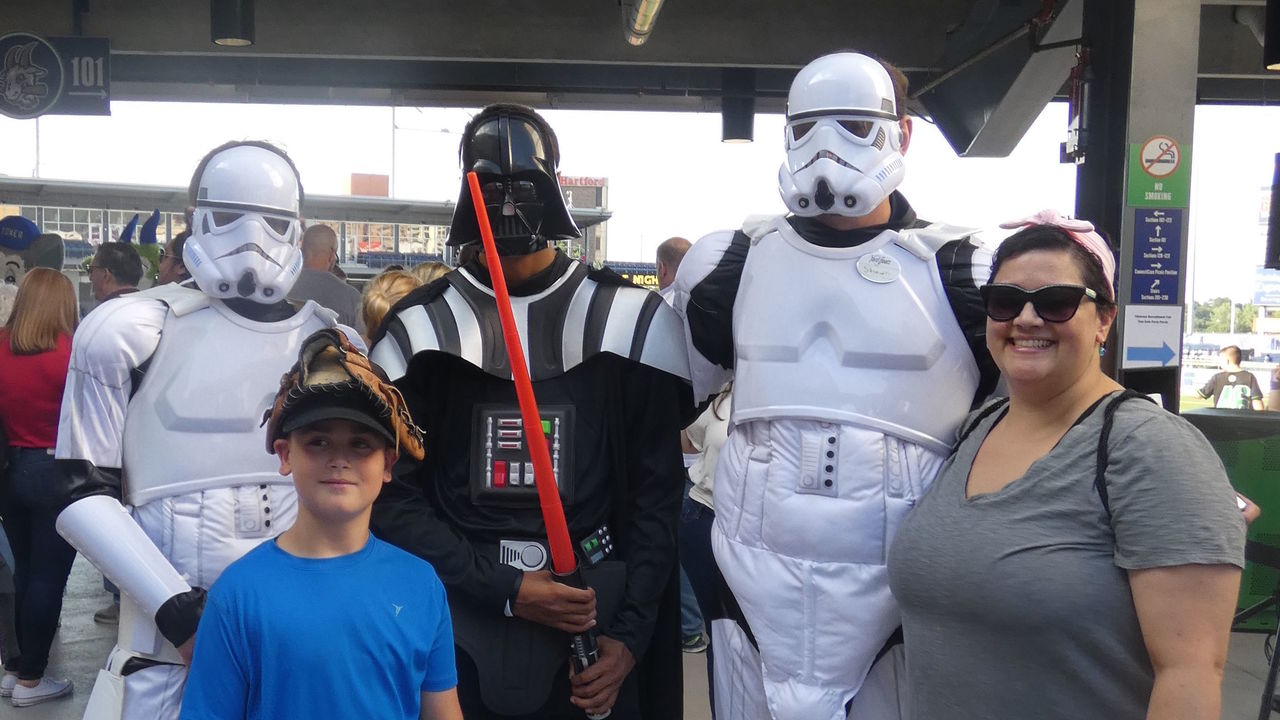
"They're chintzy," Abramson admitted of the outfits.
Down in Double-A, though, the show must go on.
"In minor-league baseball, you have to make your own luck," Abramson said. "People don't come out and buy tickets if you have a good team, and they don't not come out if you don't have a good team.
"If you just played a game every night, you'd probably get about 1,000 people to come to each game. So the reason for doing things like Star Wars Night or Irish Heritage Night or, you know, You-Name-It Night ... you're trying to target individual groups of people with a specific interest to compel them to come to that one game - not even in the hopes that they then come to multiple games. You literally have to work that hard to fill up one game."
Attracting fans on a shoestring budget - or, to be blunt, making money - is the central organizing principle of minor-league baseball teams. Theme nights have long been used to mobilize non-baseball fans and put butts in the seats.
Bill Veeck, a longtime major-league owner who is the godfather of wacky promotions, first used the practice in the early 1940s to revive the minor-league Milwaukee Brewers. His son, Mike Veeck, took up the mantle, concocting events like Vasectomy Night - axed at the last minute - and Tonya Harding Bat Day over the years with the Charleston RiverDogs.
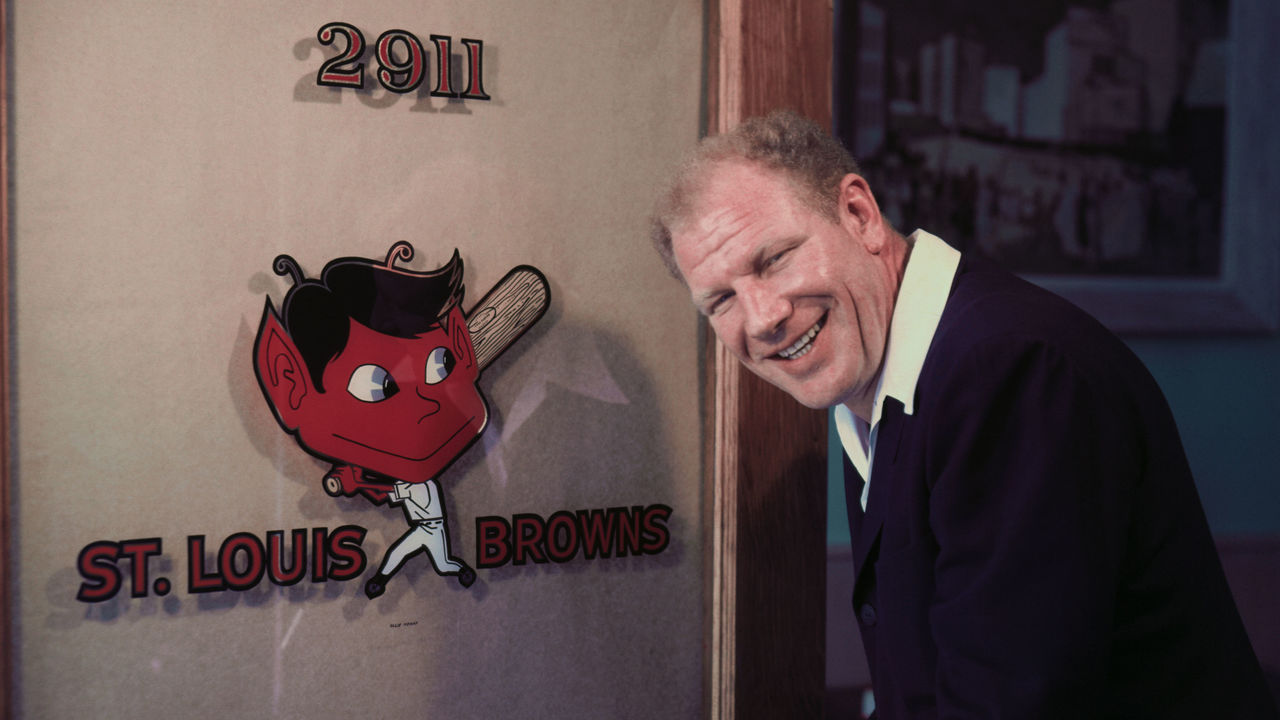
It's not uncommon these days to see more than a dozen theme nights on a club's promotional schedule for the season.
"I've been in minor-league baseball since 1999," said Michael Limmer, the vice president of marketing and promotions for the Class-A Fort Wayne TinCaps. "So I'm 20 years in. And from the very first year that I’ve been a part of it, theme nights have always been a regular occurrence. We play 70 home games. So if you just roll the ball out and you say, 'Play ball' 70 times, you're just going to attract your hardcore baseball fans.
"And that's a hard way to sustain a for-profit business, which all 160 minor-league baseball teams are. You're looking for ways to differentiate those 70 games, and so you're doing extra promotions. … Our theme nights are just one of those ways."
In years past, theme nights were hardly immersive experiences. The cost of getting custom jerseys made, for instance, along with the generally lackluster technological capability of many minor-league parks, rendered them rather minimalist. (The Lake Elsinore Storm tacitly acknowledged these realities in 2009 when they debuted their now-annual Nothing Night, a promotion as boring as it is brilliant. "The fact that there was no entertainment was the entertainment," recalled Allen Lawrence, the interim general manager of the Class-A Salem Red Sox in Virginia.)
Increasingly, though, those obstacles have ceased to exist.
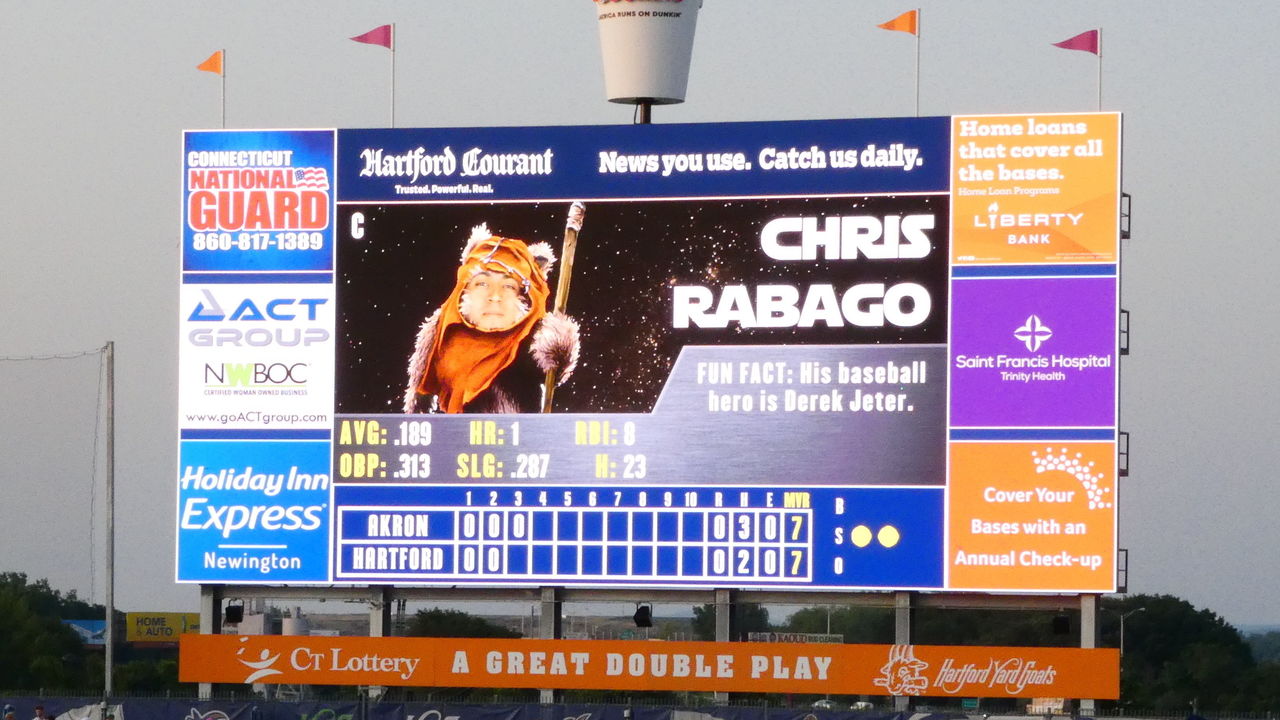
"Themes have just grown and grown, I think, as more and more ballparks started having videoboards," said Limmer, the chief architect of 17 different theme nights this season, including Christmas in July and another based on the TV show "Friends." "You could do a lot of content on the videoboard that created this additional outlet."
Recent manufacturing advances, meanwhile, have made specialty jerseys - increasingly a theme-night staple - "so much easier to do," said Limmer, whose club sported Dwight Schrute-inspired jerseys for "The Office" Night on June 28.
"The folks that create these jerseys, whether it's Wilson or OT Sports - those are kind of the two big ones in the space - the ability for them to sublimate prints onto the fabric has basically erased any barrier," he said.
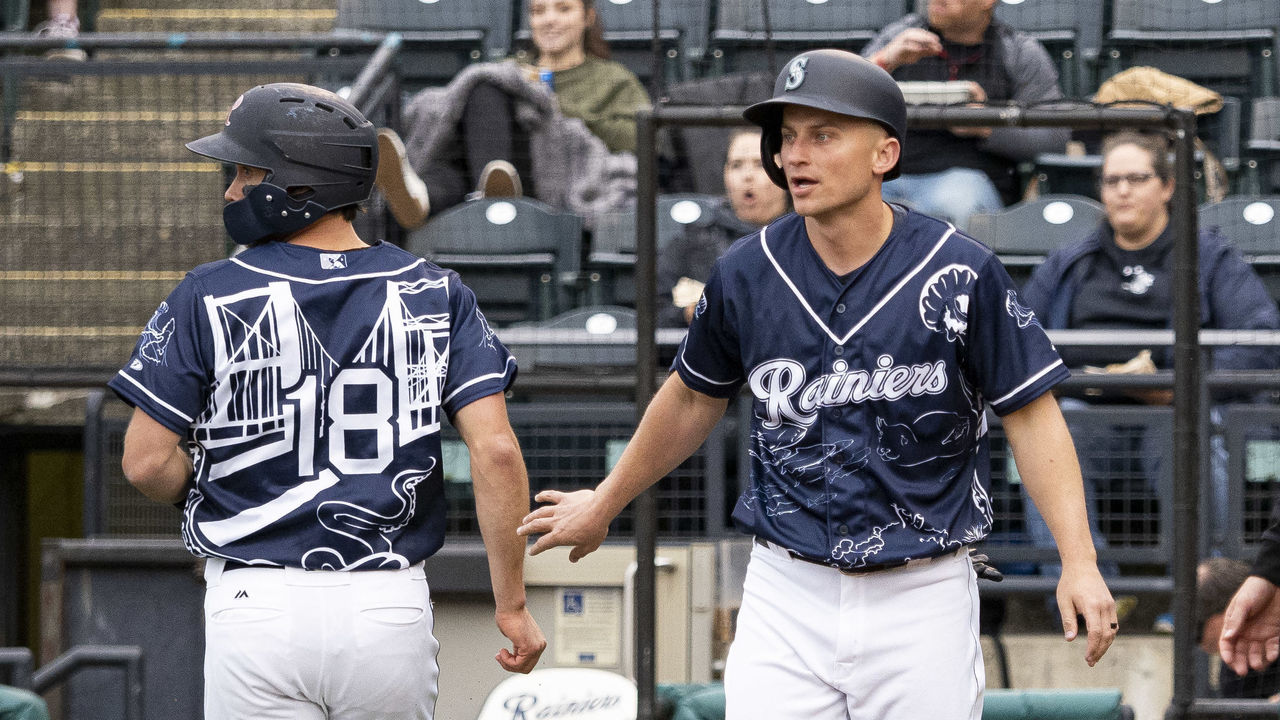
"Being able to have that flexibility of whatever we come up with we can get on that jersey has really unleashed the creativity when it comes to what our jerseys can be," Limmer continued. "You're not limited to the traditional stitching. … So when it comes to these theme nights, we basically pick the theme nights, we kind of vaguely say, 'We think these themes would be best for a jersey,' and then we kind of brainstorm, 'OK, what could a jersey be?'
"It's not like we're Disneyland here - but we’re trying to make an immersive experience."
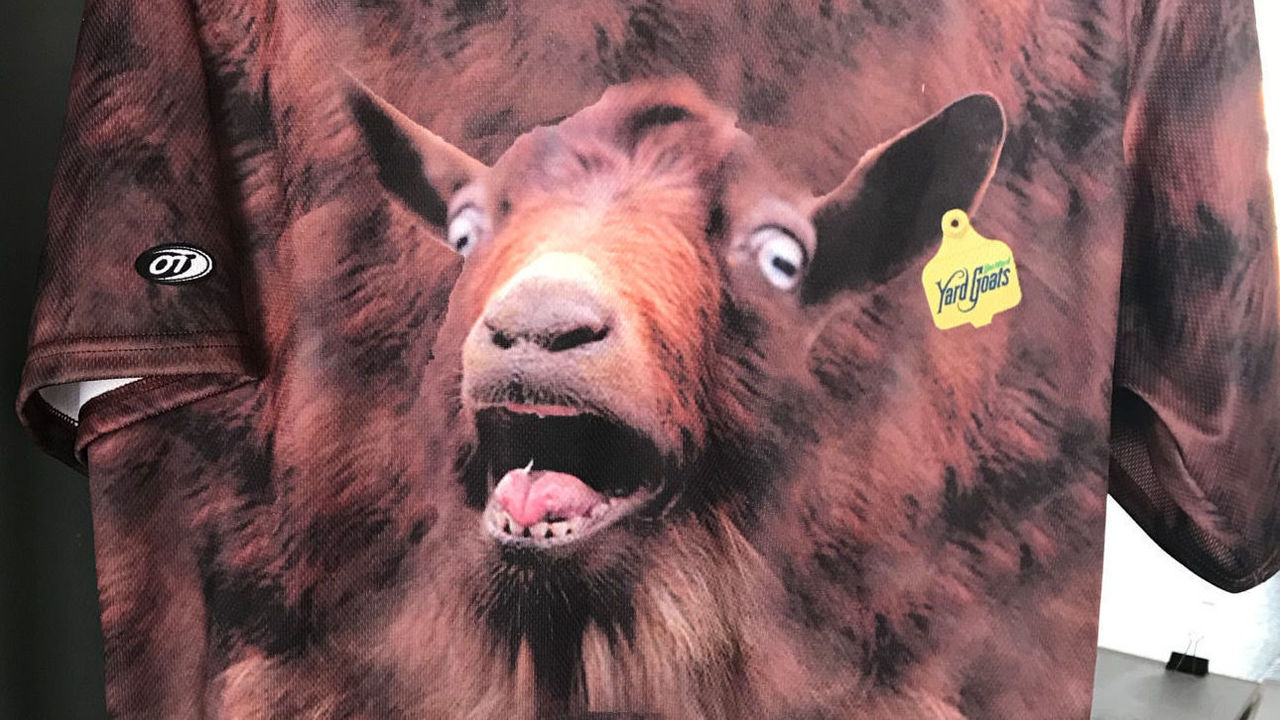
On top of enriching the theme night experience for the fans, specialty jerseys are catnip for collectors. "Those are going to go," Abramson said. "People love specialty jerseys. You can auction them. If they don't all auction at the park, you can put them online and do pretty well with them."
"In 2017, we had Ryan Braun here for Star Wars Night," recalled Jake Jirschele, the entertainment coordinator for the Class-A Wisconsin Timber Rattlers. "He made a rehab appearance because he was hurt. So he came down and helped us out, and his jersey alone went for $1,100. It was awesome. And that honestly helped us big time. … (It's) not even baseball fans, it's just Star Wars fans that want that jersey."
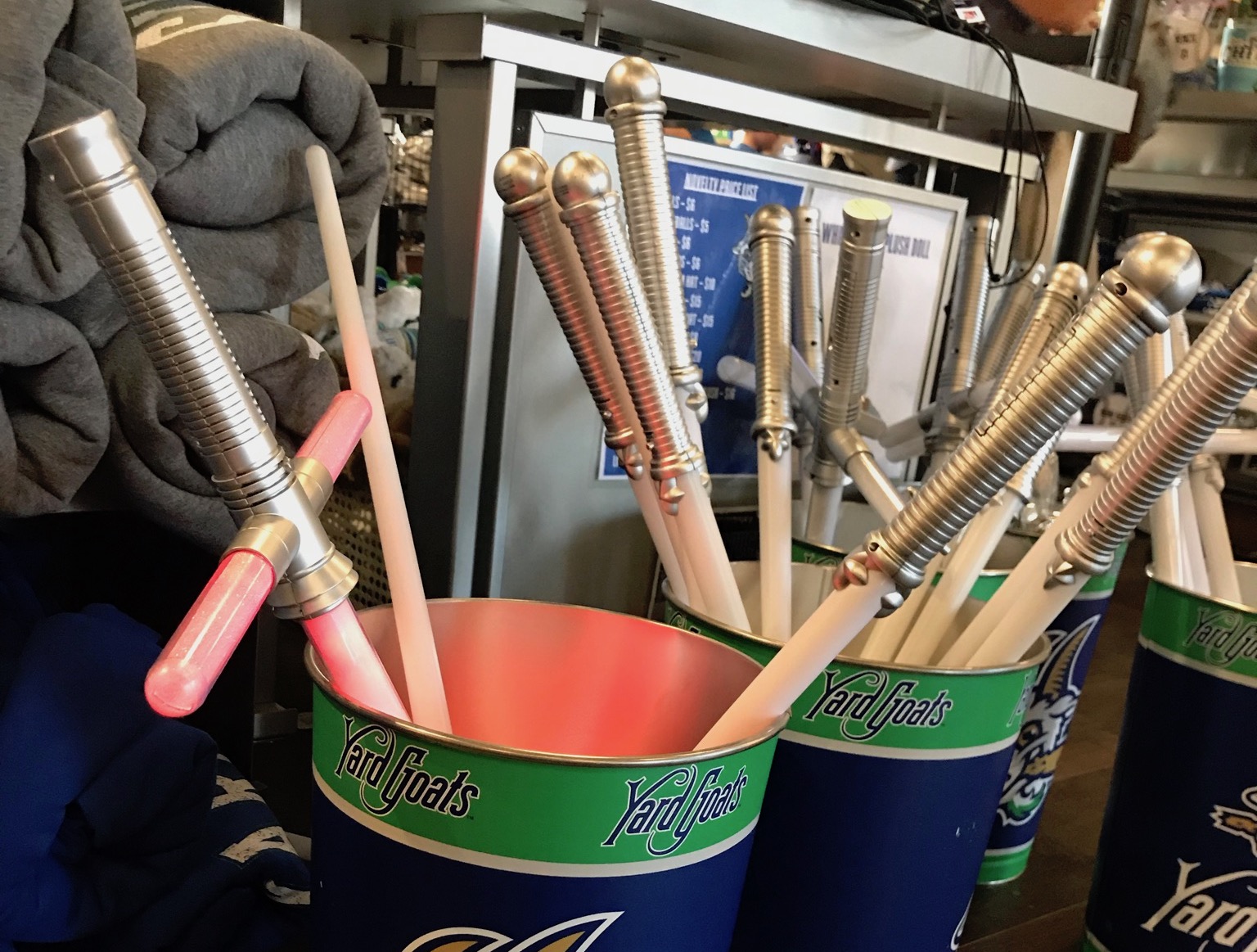
While the reduction or elimination of financial or technological limitations can be empowering, clubs still need to be wary of running with every seemingly clever idea they have. Any vaguely controversial idea can elicit backlash, and the line between edgy and alienating is often thin.
The Double-A Binghamton Rumble Ponies ended up on the unenviable side of that line in 2016, when some people bristled at the double entendre of their Netflix and Chill Night.
"It was more of an ode to Netflix and the cold weather here," explained Catie Graf, who took over as the Rumble Ponies' director of marketing and promotions in 2018.
"You try to create this family-friendly atmosphere, and when you promote Netflix and Chill, if people know what that means, they're not thinking family-friendly right away, unfortunately. It is difficult because you don't want to piss people off, you don't want them to be upset, but you want to create something that's going to intrigue people enough that they're going to (say), 'All right, I got to check this out.'"
As the Yard Goats discovered in 2018, even ostensibly family-friendly ideas can produce blowback.
"Last year, we were going to have a traveling act here called Cowboy Monkey Rodeo," Abramson said. "They go around to a lot of parks. And it is little monkeys that ride on the backs of dogs, and it's like a rodeo. Which is just, I think, hysterical and brilliant. But people who love animals did not think it was hysterical and brilliant at all. And it was so much trouble that we just, in two days, banged it."
Ultimately, though, an occasional misstep is bound to happen as minor-league teams explore this new frontier of the theme night, a longstanding promotional tradition that's evolving in real time.
"Does it benefit the fan? Is the fan going to have a good time - a better time - because of the decision we're making?" Limmer said. "And that's really where our focus is."
Jonah Birenbaum is theScore's senior MLB writer. He steams a good ham. You can find him on Twitter @birenball.